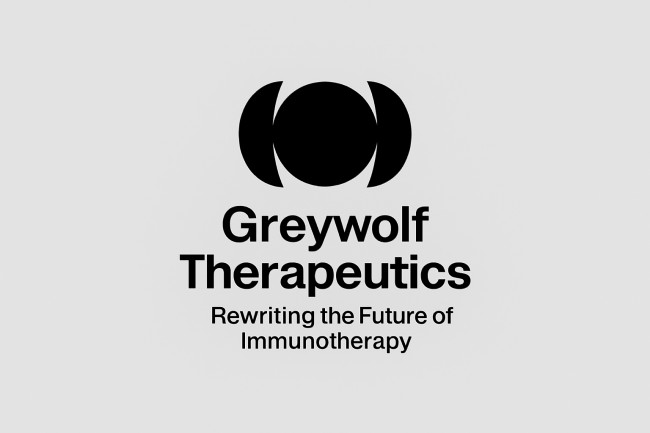Greywolf Therapeutics: Rewriting the Future of Immunotherapy

In the heart of Oxfordshire’s vibrant life-sciences cluster, a trailblazing biotechnology company is changing how modern medicine fights disease. Greywolf Therapeutics has quickly become a name associated with innovation, scientific excellence, and courage in the pursuit of new therapeutic frontiers. Founded in 2017, the company is headquartered at the Milton Park Innovation Centre, 99 Park Drive, Milton, Oxfordshire, OX14 4RY, United Kingdom. With a lean yet highly specialised team of around 11–50 employees, Greywolf Therapeutics combines world-class research expertise with bold ambition to “rewrite immunotherapy”. Their official contact number is +44 1235 644 970, and their website is greywolftherapeutics.com.
The Vision Behind Greywolf Therapeutics
A Company Founded on Revolutionary Science
Greywolf Therapeutics was founded by two visionary scientists — Dr Peter Joyce and Dr Tom McCarthy — who shared a belief that existing immunotherapy approaches could be transformed through a better understanding of antigen presentation. Their goal was to create a new class of therapeutics that could control how the immune system perceives diseased cells, such as cancerous or autoimmune cells.
At its core, Greywolf Therapeutics aims to empower the body’s immune system to recognise what was previously hidden. Instead of merely stimulating immune cells, their science focuses on modifying the target cells themselves — a fundamental re-imagining of immunotherapy.
Greywolf Therapeutics and Its Ground-Breaking Technology
The Power of Antigen Modulation
Traditional immunotherapies rely on activating or suppressing immune responses, but Greywolf Therapeutics takes a completely different route. Their technology works by modulating antigen presentation — essentially “flicking a molecular switch” inside the cell so that it appears differently to the immune system. This innovative approach makes previously invisible cancer cells more detectable to T cells, allowing the immune system to target them more effectively.
The company’s research centres on the endoplasmic reticulum aminopeptidases, commonly known as ERAP1 and ERAP2. These enzymes play a crucial role in trimming peptides before they are displayed on cell surfaces. By inhibiting or altering these enzymes, Greywolf’s treatments aim to influence which antigens are shown to immune cells — potentially transforming the way immune recognition works in both cancer and autoimmune disease.
Pipeline and Research Focus
First-in-Class Antigen Modulators
Greywolf Therapeutics is progressing a pipeline of small-molecule drugs called antigen modulators — therapies designed to reshape the communication between diseased cells and immune cells. The company’s lead drug candidate, GRWD5769, is currently in a Phase 1/2 clinical trial for oncology indications. This first-in-class ERAP1 inhibitor has shown promising pre-clinical results in enhancing the presentation of novel tumour antigens, potentially improving T-cell recognition and destruction of cancer cells.
Alongside its oncology programme, the firm is also advancing GRWD0715, another ERAP1-targeting compound, aimed at autoimmune disorders such as axial spondyloarthritis. This molecule is expected to enter clinical trials soon, marking the company’s expansion into multiple therapeutic domains.
Why Greywolf Therapeutics Stands Out
Redefining How the Immune System Sees Disease
The uniqueness of Greywolf Therapeutics lies in its ability to alter the “conversation” between diseased and immune cells. Many diseases persist because immune cells fail to recognise the danger signals displayed by abnormal cells. By changing how these signals — or antigens — are presented, Greywolf effectively teaches the immune system to see the unseen.
This approach has vast implications. In cancer, it can help the immune system detect tumours that evade recognition. In autoimmune disease, the same mechanism can be used in reverse — to suppress the presentation of harmful auto-antigens and reduce tissue damage.
Such versatility across multiple disease categories is what makes the company’s work revolutionary and positions it at the forefront of immunotherapy research.
Greywolf Therapeutics: Growth, Culture and People
A Small Team with a Global Vision
With around fifty employees, Greywolf Therapeutics may appear modest in size, but its talent pool rivals that of much larger firms. The company operates with a collaborative and agile structure, combining the flexibility of a start-up with the precision of an academic research group. The leadership team fosters a culture built on trust, innovation, curiosity, and execution excellence.
Situated in Milton Park, one of the UK’s leading science and technology campuses, the company benefits from close proximity to world-class universities, research institutes, and biotech partners. This strategic location strengthens collaboration, recruitment, and access to cutting-edge laboratory infrastructure.
Funding and Investors
Strong Financial Backing and Global Partnerships
Greywolf Therapeutics has attracted significant attention from major investors worldwide. The company has raised approximately 131 million US dollars since inception, reflecting strong market confidence in its pioneering approach.
In 2024, the company announced an oversubscribed Series B financing round worth 50 million US dollars, led by ICG Life Sciences with participation from Pfizer Ventures, Andera Partners, Canaan, Earlybird Venture Capital, Oxford Science Enterprises, and British Patient Capital.
This funding is being used to expand Greywolf’s pipeline, progress clinical trials, and further develop its autoimmune and infectious disease programmes. Such robust backing demonstrates that investors view Greywolf’s technology as not only scientifically credible but also commercially viable.
Challenges and Future Outlook
Navigating the Risks of Innovation
As with all early-stage biotech ventures, Greywolf Therapeutics faces the natural uncertainties of drug development. First-in-class therapies require rigorous clinical validation, and unforeseen safety or efficacy challenges may arise. However, the company’s strong scientific foundation and experienced leadership offer confidence in its capacity to navigate these hurdles.
Competition within immunotherapy is also fierce. While Greywolf’s antigen modulation approach remains unique, other companies exploring immune visibility could emerge. Success will depend on speed, strategic partnerships, and successful demonstration of human proof-of-concept in ongoing trials.
The Broader Impact of Greywolf Therapeutics
Driving the UK’s Life-Science Leadership
Beyond its scientific achievements, Greywolf Therapeutics plays a vital role in advancing the United Kingdom’s position as a global hub for life sciences and biotechnology. By anchoring its operations in Oxfordshire, the company contributes to job creation, innovation, and investment in the region’s high-tech economy.
Its focus on cutting-edge antigen research also fosters collaborations with academic institutions and inspires the next generation of immunologists. The company’s success story adds to the growing reputation of the UK as a world leader in immunotherapy and precision medicine.
Key Facts About Greywolf Therapeutics
-
Founded: 2017
-
Headquarters: 99 Park Drive, Milton Park, Oxfordshire, UK
-
Industry: Biotechnology Research
-
Phone: +44 1235 644 970
-
Website: greywolftherapeutics.com
-
Core Focus: Antigen modulation for immunotherapy
-
Key Therapies: GRWD5769 (cancer) and GRWD0715 (autoimmunity)
Conclusion
Greywolf Therapeutics is redefining what’s possible in the fight against complex diseases. Its innovative focus on antigen modulation represents a fundamental shift from stimulating immune cells to reshaping the way diseased cells present themselves. From oncology to autoimmune disorders, its pipeline has the potential to transform lives and deliver treatments where current options fall short.
By combining world-class science, visionary leadership, and strong investor support, Greywolf Therapeutics exemplifies the future of UK biotechnology. As it advances through clinical development, this small but powerful company from Oxfordshire may well become a global leader in next-generation immunotherapy — truly living up to its mission of rewriting immunotherapy for the modern world.


